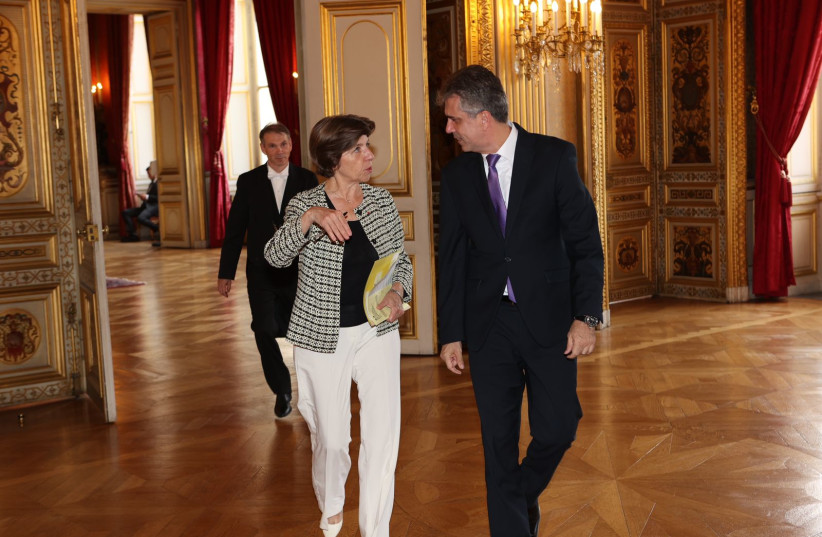Foreign Minister Eli Cohen urged France to help prevent a military conflict with Hezbollah along Israel’s northern border in Lebanon during a one-day trip he took to Paris on Wednesday.
He made his appeal during a meeting with French Foreign Minister Catherine Colonna.
"The provocation of the terrorist organization Hezbollah on the Lebanese border could degenerate into a military confrontation,” Cohen said.
“I asked my friend, Foreign Minister Colonna, to exercise France's influence in Lebanon in order to help resolve the tensions efficiently and quickly,” Cohen said.
France, which controlled Lebanon from the fall of the Ottoman Empire and until 1946, maintains a special relationship and interest in that country.

Tension has increased between Israel and Hezbollah, an Iranian proxy group entrenched in Lebanon, which fortified its military along the border between the two countries.
Attempted infiltration by Hezbollah
Earlier this month the IDF stopped an attempted Hezbollah infiltration into Israel, wounding a number of Hezbollah militants. Hezbollah last month infiltrated into Israel and set up a military installation near an IDF base on Har Dot, along the border.
Cohen’s visit came just one day before the United Nations Security Council was set to discuss the deteriorating situation along the Israeli-Lebanese border in advance of a vote next month on the annual renewal of the peacekeeping force there, known as the UN Interim Force in Lebanon (UNIFIL.)
Cohen also spoke with Colonna about the growing danger of a nuclear Iran, ahead of a September board meeting by the International Atomic Energy Agency (IAEA).
“The fight against the Iranian threat requires the entire international community to act now. The meeting of the IAEA Board of Governors in September is the right stage to act against the Iranian violations in the nuclear field,” Cohen told Colonna.
In general, he explained to her, “The diplomatic and security relations between Israel and France are of enormous importance to both countries and regional stability.”
Expanding the Abraham Accords
This is particularly true when it comes to expanding the 2020 Abraham Accords under whose rubric Israel normalized ties with four Arab states.
“France is a strategic ally of the State of Israel which can play a central role in expanding the Abraham Accords and adding more countries in Africa and the Middle East to the circle of peace,” Cohen explained to Colonna.
With respect to the West Bank, Cohen updated Colonna on the steps Israel has to put a damper on the escalating Israeli-Palestinian violence including its battle against terror. Cohen thanked Colonna for France's commitment to fighting anti-Semitism and protecting the French Jewish community.
Colonna for her part assured Cohen of her country’s commitment to Israel’s security and assured him that the two nations shared a common goal of halting Iran’s nuclear and destabilizing activities.
But she also reminded him of France’s support for the Palestinian people and of the importance of restoring a political horizon for the creation of a two-state resolution to the conflict.
